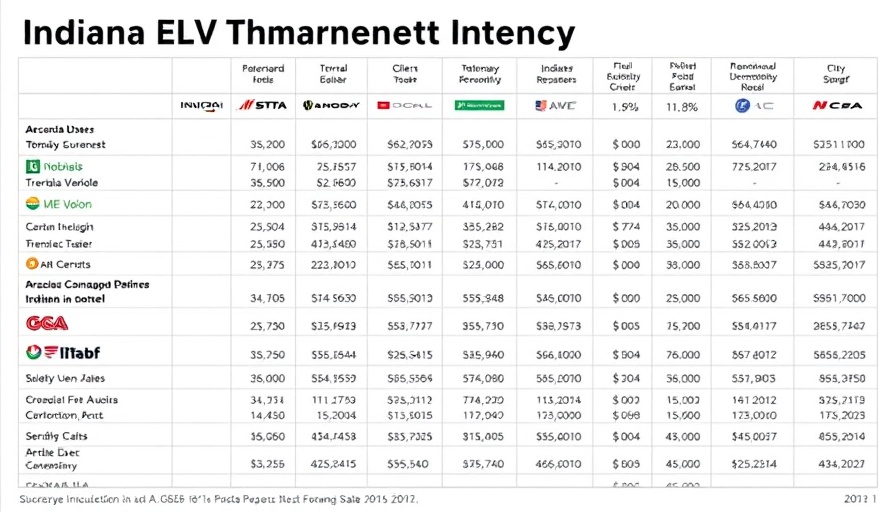
A Shift in Electric Vehicle Tax Credits Creates Uncertainty for Indiana Businesses
As the U.S. government plans to phase out significant tax credits for electric vehicles (EVs), Indiana's EV industry faces potential upheaval. With these tax incentives having played a crucial role in driving demand for electric cars and trucks, manufacturers in the state find themselves grappling with what this means for their future. For many entrepreneurs and skilled trades workers in the region, the implications extend beyond just manufacturers; the ripple effects could impact jobs and economic stability.
The Importance of Tax Credits in the EV Market
Tax credits have historically been effective in incentivizing purchases of electric vehicles by lowering upfront costs for consumers. According to industry experts, such financial incentives reportedly helped boost sales significantly. For instance, in Indiana and across the nation, companies embraced clean technology, knowing that the government supported consumer adoption through tax relief. However, with the impending expiration of these crucial credits, both producers and consumers are left uncertain. Consumers may hesitate to invest in electric vehicles that now represent a more significant financial commitment without the tax relief.
Potential Job Losses and Business Challenges
For the skilled trades workforce that supports the manufacturing and maintenance of these vehicles, the elimination of tax credits may lead to job losses and reduced hours. Local manufacturers, such as those producing EV components, rely heavily on steady demand that these credits help stimulate. If consumers turn away from EV purchases in response, Indiana workers in this sector could face an uncertain future filled with layoffs and dwindling business operations.
The Local Perspective: Community Insights on Future Trends
Community members and local business owners express a range of concerns. Many fear the immediate economic effects, questioning whether they should pivot their focus away from EV production altogether. However, there is also a sense of cautious optimism among some entrepreneurs who see this uncertainty as an opportunity to innovate. According to one local business owner, embracing new technologies in energy and manufacturing could help mitigate the impact of tax credit losses.
What Can Indiana’s Businesses and Workers Do?
In light of these changes, local businesses and workers are encouraged to partake in discussions, workshops, and training opportunities to better understand the evolving landscape. Those in the manufacturing and relevant trades should consider diversifying skill sets to adapt to potential shifts away from EVs. Fostering a cooperative atmosphere among industries might also guide Indiana towards more sustainable choices, retaining and growing the green job market despite federal changes.
Community members and stakeholders are urged to voice their perspectives to local governments to advocate for continued support of sustainable transport and initiatives. Staying updated on local economic development projects and investments in skill training programs can position Indiana for future opportunities.
 Add Row
Add Row  Add
Add 




Write A Comment